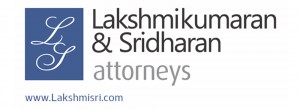To alleviate uncertainty for business created by the complexity of India’s goods and services tax (GST), the government introduced a scheme of advance ruling, borrowed largely from provisions under the previous excise and service tax regimes. The government encouraged businesses to approach the advance ruling authority on the basis that, unless the facts changed, an advance ruling in respect of an applicant was binding on the Tax Department regardless of the department’s opinion on the matter.

Partner
Lakshmikumaran & Sridharan
Under the GST law, the following questions are eligible for advance ruling: (a) classification of goods/services; (b) applicability of notification; (c) admissibility of input tax credit of tax paid or deemed to be paid; (d) determination of liability to pay tax on any goods have been retained; (e) determination of time and value of supply; (f) registration; and (g) whether an act amounts to or results in a supply of goods/service. The only significant departure from the previous advance ruling scheme is in the composition of the advance ruling panel. While the earlier panels consisted of judicial and technical members with a retired Supreme Court judge overseeing the panel as chairman, the new regime consisted wholly of officers from the Tax Department. The authority was also decentralized with the authority constituted in each state to rule on transactions undertaken locally.
The advance GST ruling scheme proved to be popular. As of May 2018, more than 75 orders had been passed by advance ruling authorities across India. The authorities in Gujarat and Maharashtra led the march, passing 15 and 14 orders respectively. West Bengal followed with 10 and Andhra Pradesh with 8.
A quick study of the first 47 orders found that around 70% of the decisions were against the applicant, around 17% were in favour of the applicant and 11% were partly in favour and partly against, clearly revealing a trend against the taxpayer.
You must be a
subscribersubscribersubscribersubscriber
to read this content, please
subscribesubscribesubscribesubscribe
today.
For group subscribers, please click here to access.
Interested in group subscription? Please contact us.
你需要登录去解锁本文内容。欢迎注册账号。如果想阅读月刊所有文章,欢迎成为我们的订阅会员成为我们的订阅会员。
L Badri Narayanan is a partner at Lakshmikumaran & Sridharan. Jyoti Pal and Disha Jain are principal associates.
B-6/10 Safdarjung Enclave
New Delhi – 110 029
India
Contact details
Tel: +91 11 2619 2243 / +91 11 4129 9900
Fax: +91 11 2619 7578 / +91 11 4129 9899
Email: LSDEL@lakshmisri.com
Website: www.lakshmisri.com



























